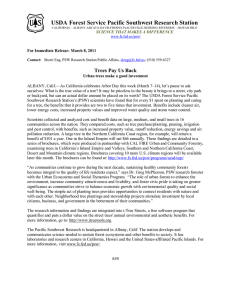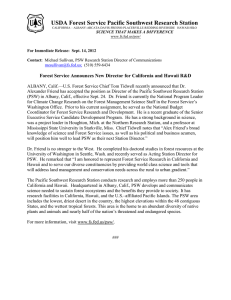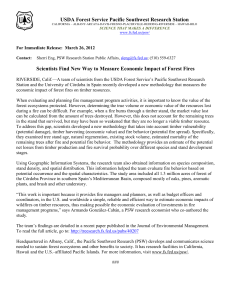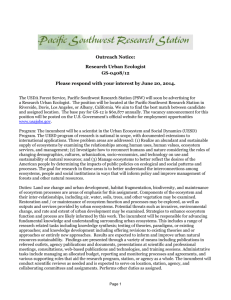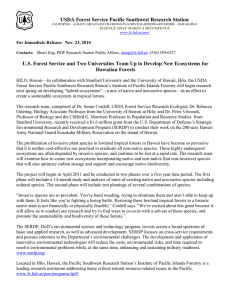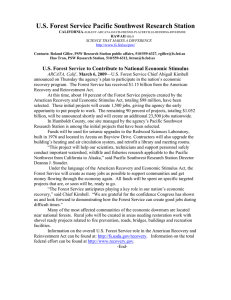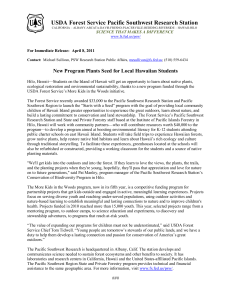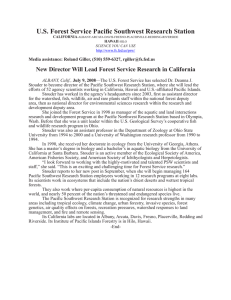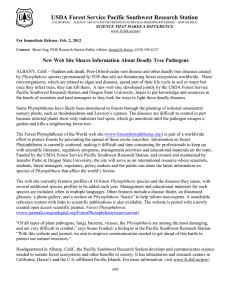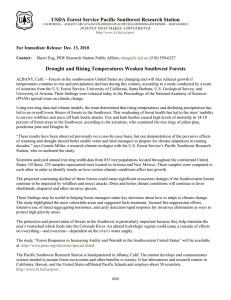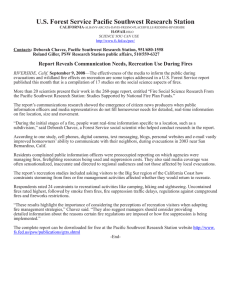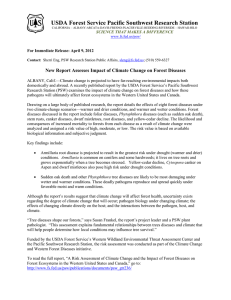USDA Forest Service Pacific Southwest Research Station
advertisement
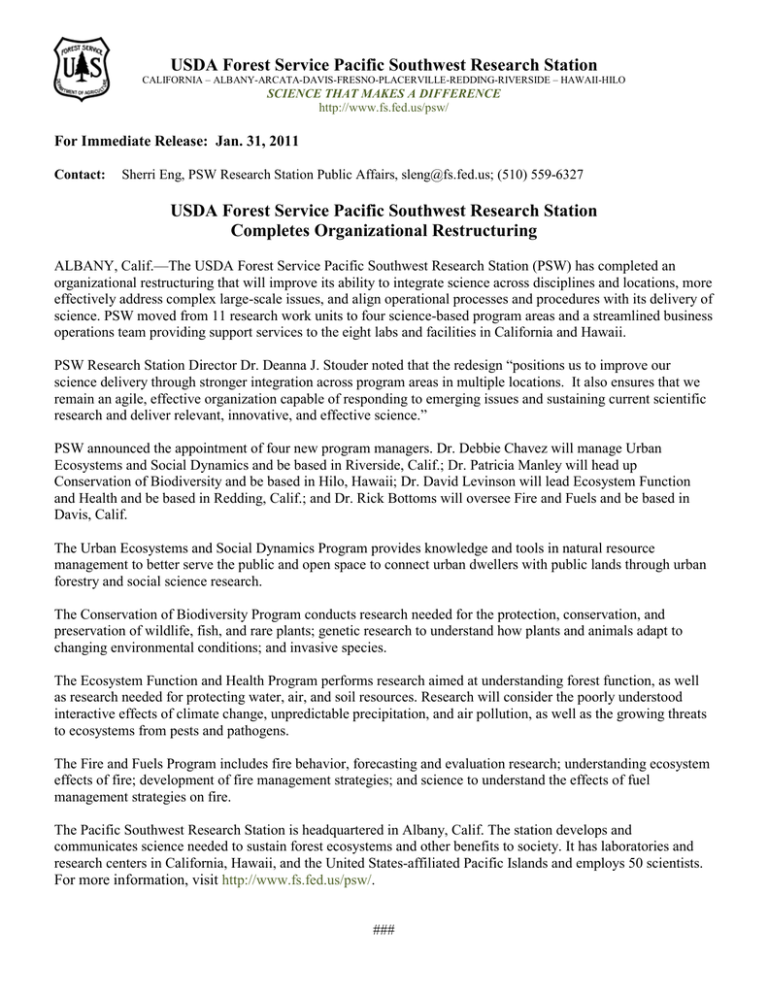
USDA Forest Service Pacific Southwest Research Station CALIFORNIA – ALBANY-ARCATA-DAVIS-FRESNO-PLACERVILLE-REDDING-RIVERSIDE – HAWAII-HILO SCIENCE THAT MAKES A DIFFERENCE http://www.fs.fed.us/psw/ For Immediate Release: Jan. 31, 2011 Contact: Sherri Eng, PSW Research Station Public Affairs, sleng@fs.fed.us; (510) 559-6327 USDA Forest Service Pacific Southwest Research Station Completes Organizational Restructuring ALBANY, Calif.—The USDA Forest Service Pacific Southwest Research Station (PSW) has completed an organizational restructuring that will improve its ability to integrate science across disciplines and locations, more effectively address complex large-scale issues, and align operational processes and procedures with its delivery of science. PSW moved from 11 research work units to four science-based program areas and a streamlined business operations team providing support services to the eight labs and facilities in California and Hawaii. PSW Research Station Director Dr. Deanna J. Stouder noted that the redesign “positions us to improve our science delivery through stronger integration across program areas in multiple locations. It also ensures that we remain an agile, effective organization capable of responding to emerging issues and sustaining current scientific research and deliver relevant, innovative, and effective science.” PSW announced the appointment of four new program managers. Dr. Debbie Chavez will manage Urban Ecosystems and Social Dynamics and be based in Riverside, Calif.; Dr. Patricia Manley will head up Conservation of Biodiversity and be based in Hilo, Hawaii; Dr. David Levinson will lead Ecosystem Function and Health and be based in Redding, Calif.; and Dr. Rick Bottoms will oversee Fire and Fuels and be based in Davis, Calif. The Urban Ecosystems and Social Dynamics Program provides knowledge and tools in natural resource management to better serve the public and open space to connect urban dwellers with public lands through urban forestry and social science research. The Conservation of Biodiversity Program conducts research needed for the protection, conservation, and preservation of wildlife, fish, and rare plants; genetic research to understand how plants and animals adapt to changing environmental conditions; and invasive species. The Ecosystem Function and Health Program performs research aimed at understanding forest function, as well as research needed for protecting water, air, and soil resources. Research will consider the poorly understood interactive effects of climate change, unpredictable precipitation, and air pollution, as well as the growing threats to ecosystems from pests and pathogens. The Fire and Fuels Program includes fire behavior, forecasting and evaluation research; understanding ecosystem effects of fire; development of fire management strategies; and science to understand the effects of fuel management strategies on fire. The Pacific Southwest Research Station is headquartered in Albany, Calif. The station develops and communicates science needed to sustain forest ecosystems and other benefits to society. It has laboratories and research centers in California, Hawaii, and the United States-affiliated Pacific Islands and employs 50 scientists. For more information, visit http://www.fs.fed.us/psw/. ###
